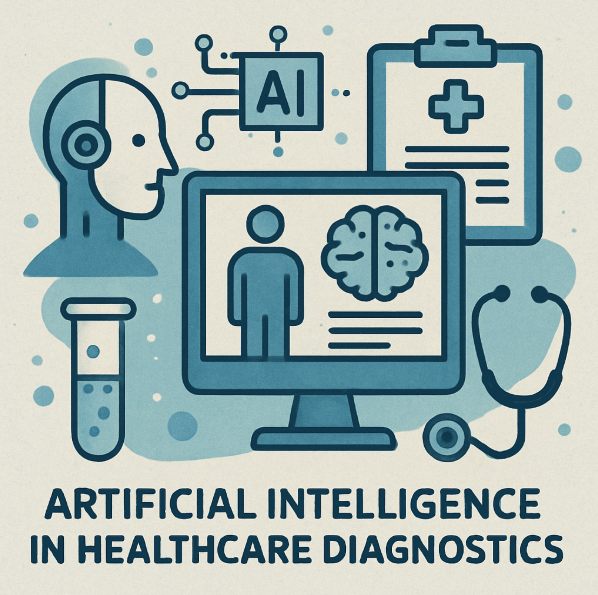The healthcare industry is on the cusp of a transformative era, driven by the integration of artificial intelligence (AI) in medical diagnostics. This groundbreaking advancement promises to enhance the precision, speed, and scalability of diagnostic processes, thereby revolutionizing patient care. As a thought leader in technological innovations, let’s explore how AI is reshaping the landscape of healthcare diagnostics.
Artificial intelligence is no longer a futuristic concept but a present reality that is gaining traction across various sectors, with healthcare being one of the most significant beneficiaries. The ability of AI to process and analyze vast amounts of data faster than any human could is proving to be a game-changer in medical diagnostics. AI algorithms can be trained to recognize patterns in medical imaging, such as X-rays, MRIs, and CT scans, which aids in early disease detection and improves diagnostic accuracy.

Benefits of AI in Medical Diagnostics
AI’s application in medical diagnostics offers several compelling advantages:
- Improved Accuracy: AI systems can achieve a high level of precision in identifying abnormalities, reducing the chances of misdiagnosis.
- Efficiency: Automated processes enable quicker results, allowing healthcare professionals to focus on patient care rather than administrative tasks.
- Scalability: AI can handle large volumes of data, making it possible to offer diagnostic services in underserved areas with limited access to healthcare professionals.
Challenges and Considerations
Despite its potential, AI in healthcare faces several challenges. Data privacy and security are of paramount concern, given the sensitive nature of medical information. Moreover, the successful implementation of AI technologies requires significant investments in infrastructure and training. Healthcare providers must also address ethical considerations, ensuring that AI complements human expertise rather than replacing it.
Future Implications and Industry Impact
AI’s integration into medical diagnostics is set to have far-reaching implications for the healthcare industry. By enhancing diagnostic capabilities, AI can lead to improved patient outcomes and reduced healthcare costs. As AI technologies continue to evolve, they will open new avenues for personalized medicine, where treatments are tailored to individual genetic profiles.
For industry leaders like Chief Technology Officers and Innovation Managers, staying abreast of these developments is critical. Leveraging AI can provide a competitive edge, enabling organizations to remain at the forefront of innovation. However, this requires a strategic approach that aligns technological advancements with business objectives, ensuring that the implementation of AI supports long-term growth and sustainability.
In conclusion, AI is poised to revolutionize medical diagnostics, offering unprecedented opportunities to enhance healthcare delivery. By understanding both the potential and challenges of AI, industry leaders can effectively harness this technology to drive innovation and improve patient care.




